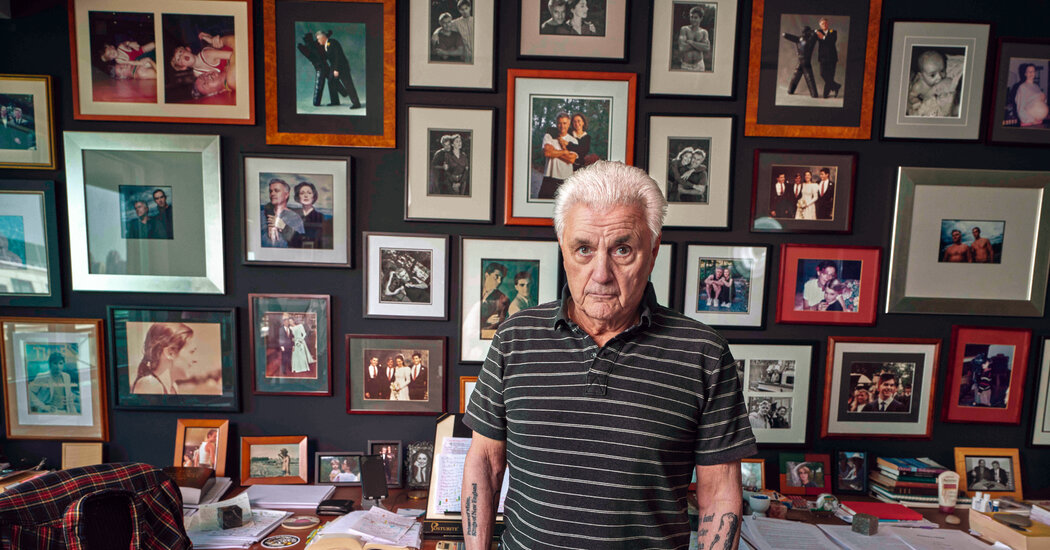QUEEN ESTHER, by John Irving
I’m a counselor at a summer camp in the upper reaches of Wisconsin in July 1990. It’s after lights-out and I’m 15 pages from finishing a worn paperback edition of John Irving’s “The Cider House Rules,” the first novel I remember gripping like a life preserver. But my campers are being loud and throwing pillows and shoes at one another. Parting with the novel’s characters even for a moment is out of the question. I have to know: How will Homer, Candy, Wally and Angel ever make their unusual family work?
I order the campers outside to wrestle with the mosquitoes.
The book has stayed with me since. I still say to my own children (though God knows they are sick of it by now): “Good night, you princes and princesses of Maine, you kings and queens of New England.”
Wilbur Larch, the “Cider House” character who said those words every night to the children of St. Cloud’s Orphanage in rural Maine, is back after 40 years, managing adoptions in Irving’s 18th novel, “Queen Esther.” The doctor, who also performs safe (albeit illegal) abortions for women with few other options, is as curmudgeonly and kindly as ever.
Beginning in the early 20th century, the novel revolves around Esther Nacht, the lone Jewish orphan raised at St. Cloud’s. Her father died en route from Vienna while emigrating to the United States. Her mother was murdered by antisemites in Portland, Maine, when Esther was 3. At 15, Esther already knows who she is and where she’s heading, and no longer needs anybody’s help. Soon she’ll have a line from Charlotte Brontë tattooed across her chest: “The more solitary, the more friendless, the more unsustained I am, the more I will respect myself.”
Too old to be adopted, Esther accepts a position as a nanny with the Winslows of Pennacook, N.H. Tommy and Connie Winslow, a boarding-school English teacher and a librarian, respectively, treat her like another daughter. They already have four: Prudence, Hope, Faith and Honor. Like Dr. Larch, the Winslows believe, fiercely, that family is above all about love, not biology.
Years later, Honor and Esther concoct the “Two-Mom’s Idea.” Honor has no interest in men or childbirth, but does crave being a mother, so Esther agrees to have her baby.
Esther settles on a wrestler named Moshe Kleinberg to be the father, and the baby they produce is James Winslow, future wrestler and would-be writer. Jimmy’s unusual parentage raises eyebrows. “To the townspeople of Pennacook, particularly the ladies of the town, Esther was a brazen hussy,” Irving writes. “But she was unashamed. As all the Winslows knew, she came naturally to being radical.”
“Queen Esther” and its preoccupations — orphans, abortion, adoption, circumcision, wrestling, sex and sex and sex, Charles Dickens, Vienna, Vietnam, the writer’s life, friendship as a form of love — hark back to Irving’s novels of the 1970s and ’80s, including “The World According to Garp,” “The Hotel New Hampshire,” “Cider House” and “A Prayer for Owen Meany.” His latest lacks the addictive propulsion of these early novels and is plagued by an at-times infuriating repetition, but I couldn’t help rooting for it anyway. I needed this dose of old-school New England decency. Few skewer sanctimony quite like Irving at his best. More important: I fell in love, once again, with his people.
Esther herself is a scene stealer. She’s a badass angel, watching over Honor and Jimmy. Later, she winds up in Jerusalem, where she becomes an uncompromising defender of Jews during a century of violence and oppression against them.
In the meantime, Jimmy grows up a Winslow and attends the University of New Hampshire. During his junior year of college abroad in Vienna, Honor, an obstetric nurse, puts forth a plan to keep him out of Vietnam. “The dependency deferment,” she writes in a letter to him. “You haven’t met someone you can knock up — have you, honey?”
Once again, Irving finds a way to create family. This time, it involves one of Jimmy’s roommates in Vienna, Jolanda, and her girlfriend, Mieke, who conveniently wants to “try it with a guy.” Will this plan work to keep Jimmy out of a disastrously conceived war, and if so, what sort of family will result?
Irving’s championing of alternative families is not only welcome but necessary — especially these days in a post-Dobbs United States. Let 2026 be the year of an Irving revival. Of course, he’s never gone away; he has been publishing regularly since 1968. But we may need his singular sense of compassion now more than ever.
At one point during Jimmy’s time in Vienna, Irving raises the question of whether a certain pivotal scene will end in “a night of comedy or a night of conscience.” It turns out to be both, and we laugh our way to some basic humanity. I’m grateful for this book, imperfections and all, and if I had to read it in a cabin full of shrieking 11-year-olds, no doubt I’d send them out into a thick Wisconsin night so I could finish it in peace.
QUEEN ESTHER | By John Irving | Simon & Schuster | 409 pp. | $30
The post John Irving’s Latest Revisits the World of ‘Cider House Rules’ appeared first on New York Times.




